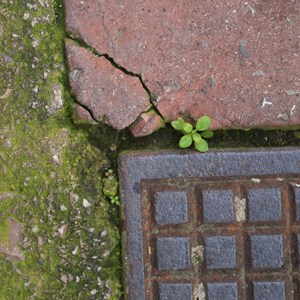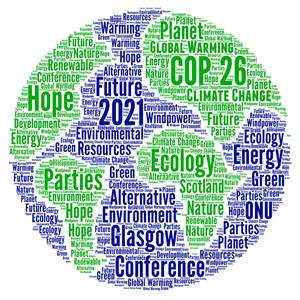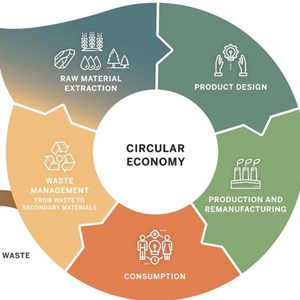NEWS

CEN Workshop on 'Key factors for the successful implementation of urban biowaste selective collection schemes’ (KEY-BIOWASTE) - draft CWA is open for public consultation.

While negative impacts of climate-related and other hazards on urban areas are widely discussed, their impacts on historic areas within cities and communities have not been studied extensively enough.

On the occasion of COP26 currently taking place in Glasgow, CEN and CENELEC just released the new policy paper “Uniting the world to tackle climate change: COP26 and the commitments of European Standards”. In the document, the two European Standardization Organisations reaffirm their commitment to contributing to the fight against climate change and raise awareness on the actions they are taking to contribute to addressing these challenges.

Do you want to know how standards, local business services and technology solutions are being used as powerful tools on businesses’ path to net-zero?

CEN Workshop proposal on 'Key factors for the successful implementation of urban biowaste selective collection schemes’ (KEY-BIOWASTE).

While negative impacts of climate-related and other hazards on urban areas are widely discussed, their impacts on historic areas have not been studied extensively enough. The aim of the workshop is to develop a management framework that helps, for example, heritage managers, public administrators, and other actors in the field of climate change adaptation planning (CCA) and disaster risk management (DRM) and heritage management.

Many initiatives have been launched both at national and European level to achieve the European objectives for climate and energy by 2030 and for the Paris Agreement. One of these is now a reference about environmental policies and governmental actions: CEN Workshop Agreement (CWA) 17675 ‘Mapping of the mandatory and voluntary Carbon Management framework in the EU’.

Climate change impacts are already affecting ecological and socio-economic systems, and it is anticipated that these impacts will continue well into the future. Organisations of all types and sizes have increasing needs to understand, mitigate and manage climate change risks. A recently published standard, EN ISO 14091:2021 ‘Adaptation to climate change - Guidelines on vulnerability, impacts and risk assessment’ offers organisations a consistent, structured and pragmatic approach to understanding their vulnerabilities and to preventing or mitigating negative consequences caused by climate change, while taking advantage of opportunities.

On 24 February 2021 the European Commission adopted the new EU Strategy on Adaptation to Climate Change.

The European Commission released its new Circular Economy Action Plan (CEAP) in support of the European Green Deal on 11 March 2020.